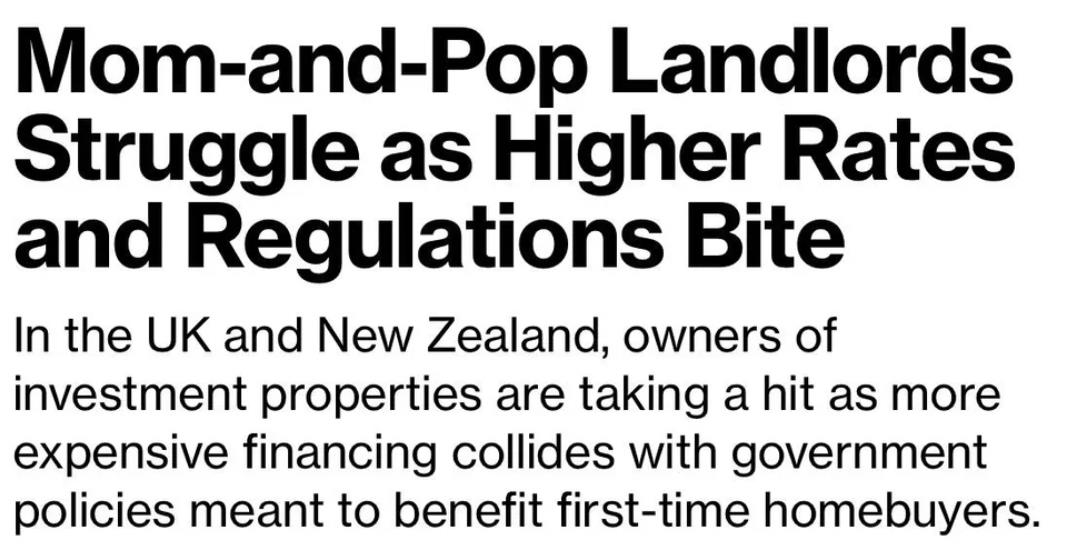by BoatSurfer600
‘We won’t be able to pay this much’: UK interest rate hike hits home
When Rob, 35, from Trowbridge in Wiltshire, and his wife bought their first home for £375,000 in 2021, they were unable to imagine that 18 months later the Bank of England would have raised interest rates to 4.5% – their highest point since 2008.
“We bought a four-bedroom house after a decade of saving, when house prices were rising 10% a year and mortgage rates were tiny,” he says. “We felt like if we didn’t buy then, we’d start moving backwards as prices were rocketing, and we were tired of renting, particularly as we have two young children.
“As the Bank of England base rate has been virtually flat our entire adult lives, we only fixed for two years, and are just beginning to start looking to remortgage now. I obviously now wish I’d have fixed for longer.”

via Bloomberg:
Buying a rental house has long been a popular way for regular people to build wealth. But for landlords in two countries on opposite sides of the globe, the math isn’t working anymore.
With higher borrowing costs cooling real estate markets globally, a change in government policy is an added burden for mom-and-pop landlords in the UK and New Zealand. Both countries, seeking to help first-time buyers afford properties, have curtailed a tax break that allowed mortgage interest to be deducted from rental income before owners pay tax on it.
Bankruptcies Are Up 216% and We Aren’t Even Halfway Through 2023. Everything is OK!
Before the 2008 financial crisis, the U.S. led the world in economic growth. It accounted for over 1/3 of total global consumption growth. In mid-2007, U.S. household wealth hit a peak of $61.4 trillion. The average home value appreciated 124% between 1997-2006.
Overinflated confidence, consumption, and value went largely unchecked. Growth became the status quo. Though few regulators and investors noticed as it was happening, those who study history look back and see the early 2000s as a classic economic bubble, made worse by shoddy loans and deregulated banking.
The real pain, of course, was felt after the initial collapse. U.S. household wealth fell $11 trillion in 2009 and unemployment peaked at 11% in October of that same year. Shockwaves affected minorities disproportionately and radiated around the world.
Greece spiraled into an insurmountable deficit between 2009-11. In 2015, the ACLU found that white homeowners recovered quicker than their black counterparts following the housing crisis, further widening the wealth and opportunity gap.
Which brings us to our second economic crisis in the post covid world.
Wow, that’s absolutely insane. Now people will take loans out to repay the old loans …